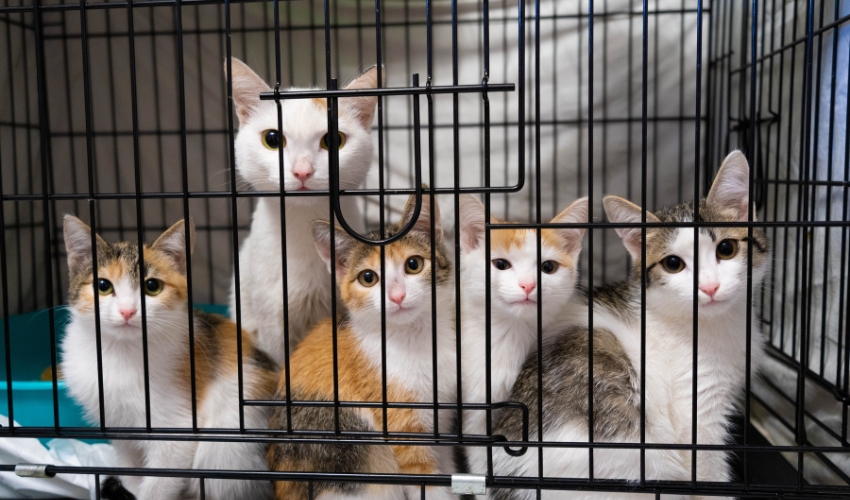Every year, millions of birds migrate across the globe, traveling thousands of miles to reach their breeding and wintering grounds. These migrations are one of the greatest wonders of the natural world, but they are increasingly threatened by human activity, especially plastic pollution.
Plastic pollution is a growing problem worldwide, and birds are particularly vulnerable to its effects. They can mistake plastic debris for food, leading to ingestion and subsequent entanglement or suffocation. In addition, plastics can release toxic chemicals that harm birds and their habitats.
Despite efforts to reduce plastic pollution, migratory birds are still dying at an alarming rate. In fact, a study by World Wildlife Fund shows that over 1 million migratory birds die from plastic pollution.

The thought of innocent birds suffering and dying because of human carelessness is heartbreaking. Seabirds, in particular, are at a higher risk of death due to plastic pollution as they migrate across vast oceans in search of food and safety.
As we mark World Migratory Bird Day 2023 on May 13, it’s important to remember that we all have a role to play in protecting these incredible birds. But first, let’s find out how plastic is risking the lives of migratory birds.
How Plastic Is Killing Millions of Migratory Birds
Plastic ingestion leads to starvation.
As migratory birds ingest more and more plastic, the amount of actual digestible food that they can consume becomes less and less. Eventually, their stomach becomes so full of plastic trash that they no longer have any room to store (nutrient-rich) food and begin to starve to death.

In case you’re wondering, research shows that 90 percent of seabirds living today have plastic waste inside their stomachs. If we don’t do anything about it, 99 percent of seabirds will suffer the effects of plastic ingestion by 2050. And if that’s not bad enough, those seabirds won’t be the only ones eating plastic—we will be, too.
Plastics contain toxic substances.
Plastics are notorious for containing all sorts of harmful chemicals, and what’s worse is that these chemicals don’t stay within the plastic itself.
When exposed to humid conditions or increased temperatures, plastics can leach toxic substances into food, water, and in this case, the organs of the migratory birds that ingest them. The birds absorb these chemicals into their bodies until it poisons them from the inside.
Plastics can cause internal injury.
Plastics are basically indestructible—even when broken down into fragments. These fragments may form into sharp-edged pieces of plastic that, when ingested by migratory birds, cause injuries to various organs.

Plastic entanglement
Of course, we can’t forget birds getting stuck or entangled in plastic waste. With over 8 million tonnes of plastic being thrown into the earth’s oceans each year, it’s almost impossible for migrating birds to avoid plastic-related mishaps that sadly, often lead to death.
Nets, fishing lines, plastic bags, and so many other plastic trash are causing birds to drown, choke, become trapped, and even become infected after sustaining wounds from having some form of plastic tightly wrapped around them.
10 Ways to Help Lengthen the Lives of Migratory Birds
So, how can we help lengthen the lives of migratory birds and prevent plastic pollution? Here are ten simple lifestyle changes you can make today:
1. Stop using plastic straws. Instead, invest in a reusable one, like a metal or glass straw, and bring it with you every time you eat out.
2. Did you know that it can take over 10,000 years for ONE plastic bag to decompose? Be part of the solution by opting for eco-friendly bags (or canvas tote bags), not plastic bags.
3. Drink beverages from a reusable bottle, even when ordering from a to-go shop or café.
4. Use matches instead of plastic lighters.
5. Swear off chewing gum. Birds often mistake gum for food and when they eat it, it causes blockages in their intestinal tract.
6. When ordering take-out, request restaurants NOT to pack your meals in plastic containers.
7. If you have a baby, opt for reusable cloth diapers instead of disposable ones.
8. Rather than buying disposable razors, get one with replaceable blades.
9. When shopping for groceries, choose products packed in cardboard or paper instead of plastic.
10. Refrain from getting bottled grooming products (shampoo, body wash, conditioner, hand soap, etc.). Try switching to shampoo/conditioner/soap bars.
For more ways to help reduce plastic waste and prevent migratory birds from suffering the effects of plastic pollution, you can check out this article.












